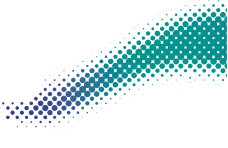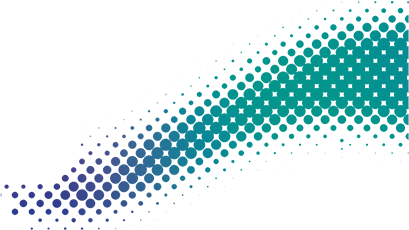Copyright © Petroliam Nasional Berhad (PETRONAS) (20076-K).
All rights reserved.
-
Progressing Energy
- Overview
- Exploration
- Development & Production
- Malaysia Petroleum Management
- Refining
- Chemicals
- Carbon Management
- Marketing, Trading & Retail
- Gas Business
- Liquefied Natural Gas (LNG)
- Gas & Power
- Innovation Gateway @ PETRONAS (iG@P)
- PETRONAS Ventures
- Technical Solutions
- SEEd.Lab
- Talent Development & Education
- PING
- Lubricants
- Sustainability
- Investor Relations
- Our Stories

Kuala Lumpur, 22 May 2020 – PETRONAS today announced its financial results for the first quarter ended 31 March 2020, amid challenging market conditions and plummeting oil prices, coupled with shrinking global oil demand due to the COVID-19 pandemic and the risk of ongoing economic uncertainty.
As the industry outlook continues to be marred by prolonged volatility, the Group remains focused in strengthening its resilience to weather the downward cycle while not losing sight of its long-term plans to ensure PETRONAS’ future sustainability.
Tan Sri Wan Zulkiflee Wan Ariffin, President and Group Chief Executive Officer, PETRONAS
“We anticipate a very challenging outlook for the rest of 2020, with economic activities expected to only gradually recover in the second half of the year. Industry players, including PETRONAS, will be adversely impacted if the current market situation persists and oil prices remain low.
Against this challenging backdrop, our focus is to preserve cash and maintain our liquidity, continue our cost compression efforts and respond to changing market conditions with pace. We will also continue to uphold the health and safety of our people and communities where we operate as well as contribute towards efforts in overcoming the global pandemic.
In the longer term, we remain committed to our 3-pronged growth strategy to maximise cash generators, expand core business, and stepping out to future proof the organisation and ensure PETRONAS’ long-term sustainability.”
First Quarter 2020 Results
For the first quarter ended 31 March 2020, the Group recorded a revenue of RM59.6 billion, a 4.0 per cent decrease from RM62.0 billion in the same period last year, mainly attributable to the impact of lower average realised prices recorded for LNG, petroleum products and crude oil & condensates. The decrease was partially offset by the impact of higher sales volume mainly for petroleum products coupled with the effect of the weakening Ringgit against the US Dollar exchange rate.
Profit After Tax (PAT) for the quarter stood at RM4.5 billion, 68 per cent lower than the RM14.2 billion posted in the corresponding quarter in the previous year, primarily due to net impairment on assets and lower revenue recorded. However, these were partially offset by lower tax expenses.
PAT excluding impairment, however, stood at RM9.2 billion, a 35 per cent decrease from RM14.1 billion compared to the first quarter last year.
Earnings Before Interest, Tax, Depreciation and Amortisation (EBITDA) dropped 27 per cent to RM20.3 billion from RM27.8 billion in the corresponding quarter last year, in line with lower Profit Before Tax (PBT).
Cash flows from operating activities for the first quarter of 2020, decreased by 24 per cent as compared to the first quarter of 2019 mainly due to lower cash operating profit and net negative working capital changes partially offset by lower taxation paid.
Total assets increased to RM630.0 billion as at 31 March 2020, compared to RM622.4 billion recorded as at 31 December 2019, mainly due to higher capital expenditure and the effect of the weakening Ringgit against the US Dollar exchange rate.
As at 31 March 2020, shareholders’ equity decreased to RM374.1 billion compared to RM389.1 billion as at 31 December 2019, primarily contributed by the final dividend declared for the financial year ended 31 December 2019. This was partially offset by profit generated during the period and an increase in foreign currency translation reserve due to the effect of the weakening Ringgit against the US Dollar exchange rate.
Return on Average Capital Employed (ROACE) decreased to 6.6 per cent as at 31 March 2020, from 8.7 per cent as at 31 December 2019, in line with the lower profit recorded.
Gearing ratio increased marginally to 19.9 per cent as at 31 March 2020 from 19.4 per cent, as at 31 December 2019, mainly due to higher borrowings following the impact of the weakening Ringgit against the US Dollar exchange rate.
The Group’s capital investment during the first quarter of 2020 was RM8.5 billion, mainly attributable to Upstream projects.
Outlook
PETRONAS is operating in unprecedented market conditions driven by a combination of severe demand destruction due to COVID-19 pandemic and global oil market glut, which are testing the resilience of oil and gas players globally. In mitigating the negative impact on its profitability and liquidity, the Group is taking steps to optimise its planned international capital investments and operating expenditures. While the Group continues to invest domestically, it anticipates that there will be constraints in the supply chain as a result of the pandemic. The Board expects the overall financial year performance will be significantly affected by these factors.
PETRONAS’ Response to COVID-19
As the COVID-19 pandemic situation continues to evolve, PETRONAS is committed to support the Malaysian Government’s efforts in mitigating the spread of the virus. To date, the Group’s total contribution towards the COVID-19 efforts and initiatives stands at just below RM40 million.
The total contribution includes RM20 million worth of critical medical equipment and supplies to aid the efforts of hospitals and healthcare front-liners, donated by Yayasan PETRONAS, the company’s corporate social responsibility arm, on 23 March 2020. This is being carried out in stages in collaboration with Malaysia’s Ministry of Health and National Disaster Management Agency (NADMA). Apart from hospitals and front-liners, contributions were also given to the B40 (low-income group) in conjunction with Hari Raya Aidilfitri, Kaamatan and Gawai celebrations, amounting to RM1 million.
PETRONAS’ staff across the globe had also donated RM6.4 million to COVID-19 efforts through voluntary salary contributions. Additionally, PETRONAS employees have also backed donation drives by the Company’s affiliated organisations such as the Association of Wives and Women Staff of PETRONAS (PETRONITA), Badan Kebajikan Islam PETRONAS (BAKIP), Dana Asy-Syakirin PETRONAS and Kelab Sukan dan Rekreasi PETRONAS (KSRP).
The Company’s business operating units and subsidiaries as well as affiliated organisations across the Group have also extended their contributions to combat the pandemic. In Malaysia as well as in our international operations, our companies have provided medical supplies and equipment as well as raw materials for the production of face shields for front-liners and surrounding hospitals. These subsidiaries also extended financial aid and essentials to underprivileged households. Some of our subsidiaries have also supported the effort through the production of sanitising liquids and disinfectant products.
Operational Highlights - Q1 FY2020
Upstream
- Total daily production average for the first three months of 2020 was 2,464 thousand barrels of oil equivalent (boe) per day, slightly above the 2,436 thousand boe per day in 2019, mainly attributable to an increase in liquid production from Brazil. However, a downward production trend is anticipated in the near term as a result of lower demand coupled with prolonged lockdowns implemented globally and the Movement Control Order (MCO) in Malaysia as well as the implementation of Malaysia’s production cut as part of its OPEC+ commitment in the coming months. PETRONAS will continue to adapt swiftly through its robust business strategies that focus on value driven production while also ensuring safe operations.
- A total of five projects achieved first hydrocarbon, adding 11,000 boe per day of new production, comprising three Brownfields in Sarawak, as well as two Greenfields in Peninsular Malaysia.
- PETRONAS made two exploration discoveries in SK407 Kelapa Bali and SK408 Remayong fields, offshore Sarawak.
- A total of four projects of which three are in Malaysia and one international, achieved Final Investment Decision (FID). PETRONAS will continue to prioritise projects that are robust and provide the best value to its portfolio, in addition to continuous improvement of its capital productivity to remain nimble and competitive in a low-price environment.
- Reduced 0.15 tCO2e/year of Greenhouse Gas (GHG) emissions via the Tiong Surface Jet Pump facilities improvement project in Peninsular Malaysia. By utilising a maintenance-free system and erosion-resistant equipment, the project supports PETRONAS’ sustainability initiatives.
- Achieved 75 per cent OPEX reduction for mature field operations at the Tembungo field, offshore Sabah through remote monitoring, minimal manning and condition-based maintenance to name a few. This reduces operational cost and ensures our people remain safe while delivering sustainable value. At the same time, this is one of the many measures we have implemented in Upstream as part of efforts to reduce our operational expenditure.
- On 17 January 2020, PETRONAS through its subsidiary, Progress Resources USA Ltd. (PRUL), entered into a participation agreement with Equinor Gulf of Mexico LLC (“Equinor”) for a 30 per cent working interest in the Monument Prospect in the US Gulf of Mexico. Subsequently, on 6 April 2020, PRUL and its partners announced an oil discovery in the Monument exploration well. This is the company’s first entry into oil and gas operations in the US Gulf of Mexico, and this entry and discovery further supports PETRONAS’ global growth strategy to increase its portfolio of oil and gas resources in the Americas.
Gas & New Energy
- In the first quarter of 2020, Gas & New Energy have achieved improvements in production and sales as follows:
- Total liquefied natural gas (LNG) production for the quarter increased by 3.0 per cent to 7.39 million metric tonnes as compared to 7.18 million metric tonnes achieved in the first quarter of 2019, mainly attributed to higher feedgas supply and stable plant performance.
- As for LNG sales volume, gross sales for the quarter was 6.0 per cent higher at 9.99 million metric tonnes as compared to 9.40 million metric tonnes achieved in the first quarter of 2019, mainly attributed to higher trading activities as more opportunities arose due to increased liquidity.
- Overall Equipment Effectiveness (OEE) for GNE business stood at 97.4 per cent across all business segments, recording an increase of 2.5 per cent as compared to 94.9 per cent achieved in the first quarter of 2019.
- Malaysia average sales gas volume for the quarter decreased by 13 per cent to 2,566 mmscfd, as compared to 2,962 mmscfd achieved in the first quarter of 2019, due to lower offtake from the power sector in Peninsular Malaysia. With diminishing demand expected to persist in the coming months due to the weaker global economy, we have undertaken measures to diversify our customer pool and range of services to ensure our competitiveness in the market.
- In responding to the volatile market environment, we are leveraging on digital tools to make data-backed decisions at pace. We have established adaptive measures to optimise our production profile to ensure best value for our molecules. We have also successfully delivered our 11,111th cargo in January 2020, from the PETRONAS LNG Complex (PLC) in Bintulu to our long-term buyer, JERA, at Futtsu in Japan. The delivery of this milestone cargo marks over 37 years of world-class asset performance since operations began at PLC in 1983, further cementing PETRONAS’ leading position as a highly reliable LNG supplier and solutions partner in meeting growing global demand.
- PETRONAS continues to define the future of the LNG industry with its second floating LNG vessel, PFLNG Dua, with a production capacity of 1.5 MTPA and capable of monetising deep-water gas fields in depths of up to 1,500 metres. PFLNG DUA, successfully sailed-away on 18 February 2020 from Geoje Island, South Korea to the Rotan gas field, located 140 km offshore Kota Kinabalu, Sabah, and completed its maiden voyage on 3 March 2020. The vessel is planned for commercialisation by end of 2020.
- Amidst the backdrop of an increasingly challenging market environment, PETRONAS LNG Ltd. (PLL), concluded a Heads of Agreement (HOA) with Shenergy Group, the Shanghai provincial energy company for 1.5 MTPA of LNG supply in early January 2020.The LNG deal is for a 12-year term starting from 2022 with an option to extend for an additional 12-years, also includes a shipping collaboration to construct and charter two new mid-sized LNG vessels to optimise cargo delivery. This new LNG deal demonstrates PETRONAS’ position as a customer-centric LNG solutions partner, having been a major LNG supplier to its subsidiary, Shanghai LNG Co. Ltd since 2006.
- As part of our Stepping-Out strategy, PETRONAS New Energy continues to grow its renewable energy portfolio with a total capacity of 650 MWp under operation and development in Asia. As of the first quarter of 2020, PETRONAS New Energy has commissioned 444 MWp in total capacity and started operations at the newly completed 75 MWp open access solar project in Mirzapur, India. With prolonged lockdowns implemented by various governments around the world, PETRONAS New Energy is working closely with relevant authorities and partners across India and South East Asia to minimise business interruptions while continuing to deliver the additional 207 MWp of capacity for projects under development.
Downstream
- For the first quarter of 2020, Downstream maintained its operational performance across all business segments. Overall Equipment Effectiveness (OEE) recorded a sustained performance above 90 per cent. Domestic refineries recorded stable operations of 95.8 per cent compared to the same period last year, while the Engen Petroleum (Engen) refinery in Durban, South Africa, registered an OEE of 87.9 per cent.
- Overall, the business recorded a slowdown due to market fluctuation coupled with the prolonged lockdowns implemented globally and the MCO in Malaysia. Operationally, all plants adhered to respective government regulations and sustained production volume. Engen refinery and lubricants blending plants in a few locations internationally experienced a slowdown in their operations, but the markets continued to be served through inventory supply.
- This trend will likely continue in the coming months. Whilst Downstream was able to capture the offset during the low crude price scenario previously, this time around, major product cracks including diesel, gasoline and naphtha are expected to remain weak due to oversupply. Similarly, the petrochemicals business is forecasted to experience compressed spreads for all products.
- For this period, PETRONAS Chemicals Group Berhad (PCG) sustained its operational performance and recorded Plant Utilisation of 94 per cent, and overall production volume stood at 2.7 million metric tonnes. Petrochemicals products sales volume recorded two million metric tonnes, a slight improvement compared to the same period last year.
- Marketing segment suffered decline in demand by 5.0 per cent due to a significant demand drop in March. For the period, overall sales volume was recorded at 6 billion litres compared to 6.2 billion litres in the same period last year. Engen and PETRONAS Lubricants International (PLI) registered lower sales volume of 5.0 per cent and 20 per cent respectively. Our domestic operations under PETRONAS Dagangan Berhad (PDB) recorded 4.0 per cent volume reduction compared to the same period last year, also contributed by the MCO in Malaysia.
- Setel, Malaysia’s first e-payment solution for fuel purchases directly from mobile devices, crossed its one million user mark within a month after its nationwide expansion in February, doubling its record in 2019. During the MCO, Setel was recognised as a solution to minimise physical interactions and high-touch surfaces when at the stations with the benefit of a single application that integrates fuel payments, loyalty and retail, providing customers with a seamless refueling experience.
- On 15 March 2020, a fire incident occurred at the Diesel Hydro Treating Unit (DHT) at Pengerang Refining and Petrochemical (PRefChem). No other units within the Pengerang Integrated Complex (PIC) were affected. However, total facilities were shut down after the incident to facilitate a detailed investigation.
To view PETRONAS Group Financial, click here.
To view PETRONAS Operational Report for Q1 FY2020, click here.
Issued by
Media Engagement Department
Group Strategic Communications
PETRONAS




